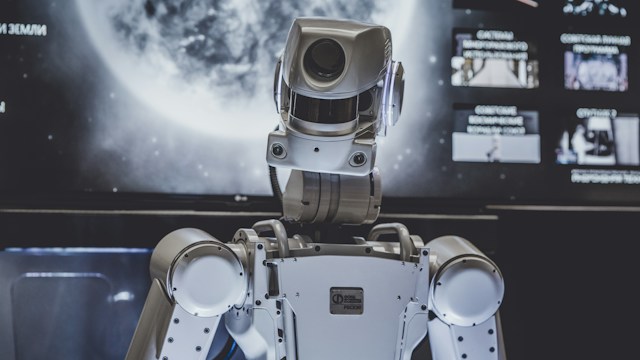Legal technology is advancing at a rapid rate, but will robots ever be able to replace human lawyers? In this blog post, we explore the potential of robots taking on the role of legal professionals. We look at the current state of technology, and how it can be used to assist and potentially replace lawyers in the near future.
Introduction
As society becomes increasingly reliant on artificial intelligence, it is likely that robots will play a role in the legal field in the future. Robots are already being used to perform document reviews and interrogate the possibility of artificial intelligence and advanced robotics taking over lawyers’ jobs. While this may be bad news for tomorrow’s attorneys, it is great news for those in need of cheap legal assistance.
What is AI and its Role in the Legal Field?
What is AI and its role in the legal field? As technology advances, it is not surprising to see AI being used in more and more capacities. Recently, AI has been used to review contracts more quickly and consistently, spotting issues and saving time-consuming paperwork. Additionally, AI has the potential to transform the role of lawyers in delivering legal services. Currently, lawyers are primarily responsible for performing paperwork-based duties that detract from their primary responsibilities. With the help of AI, this may change. Instead of a robot playing the role of a lawyer, lawyers may be replaced by their primary responsibilities. However, this is still somewhat speculative at this point.
What Roles Can AI Play in the Legal Field?
As the legal field continues to evolve, machines are beginning to play an increasingly important role. Known as AI lawyers, these robots are designed to carry out some of the tasks traditionally performed by lawyers, including historical case data processing, legal research, and case outcome prediction.
While there are some disadvantages to using AI in the legal field, such as the potential for bias, the advantages of automation are clear. For law firms, this means reduced time-consuming tasks and a more cost-effective experience for clients.
As AI continues to develop, we can only imagine what roles it will play in the future. Stay tuned for more updates in this exciting field!
Will Robots Replace Human Lawyers?
The question of whether or not robots will eventually replace human lawyers is a hot topic of discussion. Some people believe that this is inevitable, while others are more skeptical.
There are many reasons why a robot might eventually be able to replace human lawyers. For one, robots are designed to strictly follow rules, which can make them more efficient in legal proceedings. Additionally, humans have intuition that is essential for making logical decisions. As technology continues to evolve, it is likely that robots will become even better at performing legal tasks. However, jobs that rely heavily on human ingenuity (such as criminal law) are unlikely to be replaced by robots in the foreseeable future.
How AI Can Assist Human Lawyers
There is no doubt that AI is gradually taking over many tasks that were once considered the domain of human professionals. From legal work to medical diagnosis, machines are increasingly being used to fill in for human beings. And while many professionals may be apprehensive about this trend, there are a number of benefits to using AI in the legal field.
First and foremost, AI can help reduce the workload of human lawyers. By automating routine tasks, AI can free up valuable time for more important tasks. This reduction in workload could result in a 13 percent reduction in the workload of a lawyer, which would be a significant advantage in today’s competitive market.
Secondly, AI technology is highly accurate and reliable. Unlike humans, who make logical leaps based on intuition, machines are able to follow strict rules without error. This makes AI an ideal tool for legal work that requires precision and accuracy.
Finally, AI technology is constantly evolving and improving. As the technology becomes more sophisticated, it will be able to handle more complex legal tasks. This means that the role of the lawyer will gradually shift from traditional courtroom representation to providing support and assistance to clients through technology. In short, AI is likely to play an increasingly important role in the legal field in the coming years.
AI-based Lawyer Chatbot
As AI technology gradually starts playing a greater role in our everyday lives, companies like DoNotPay are starting to implement AI-based lawyer chatbots. These chatbots are designed to help users with simple tasks, such as drafting legal letters or filing basic claims.
However, this isn’t the only application for AI-based lawyer chatbots. In the near future, it’s likely that these chatbots will play a more significant role in legal proceedings. For example, AI-based lawyer chatbots could be used to help defendants fight their speeding tickets. Alternatively, they could be used to assist attorneys in court proceedings.
As AI technology continues to develop, there’s no doubt that we’ll see more applications for lawyer chatbots. So, if you have any legal questions that you’d like answered by a robot, don’t hesitate to contact DoNotPay!
Logical Arguments in the Legal Field
As the legal field continues to change, predictions of the end of the legal profession are becoming more common. One area where AI is already playing a significant role is predictive coding, which helps lawyers review extremely large volumes of documents. As AI becomes more advanced, it is likely that robot lawyers will take over the field.
The Role of Emotions in Legal Disputes
As the role of lawyers and the legal system continues to grow, it is important to consider the role that emotions play in legal disputes. Fear has often been identified as one of the key factors that have led to the creation of legislation. For example, themes such as safety and security are often addressed through legislation. This means that, instead of fighting court-related disputes through ADR (alternative dispute resolution), more disputes may be diverted to legal proceedings. Additionally, emotionless systems may have a difficult time rendering a fair judgment in cases where emotions are a major part of the dispute.
Limitations of AI in the Legal Field
As artificial intelligence (AI) continues to evolve, it is likely that we will see more machines playing the role of lawyers. While there are many limitations to AI in the legal field at present, Jonathan Smithers, a legal expert and the author of “The Future of Law: How AI is Transforming the Profession”, believes that the role of AI in the delivery of legal services will continue to grow.
Smithers points out that, currently, AI is most effective when it is used to review contracts or to spot inconsistencies. However, he predicts that AI will soon be able to fill more roles in the legal field, such as research and drafting. In fact, he believes that AI could even take on the role of the judge in the future.
While there are many benefits to using AI in the legal field, there are also some risks. For example, if AI is used incorrectly or if there is a cyberattack, it could lead to serious consequences. As lawyers begin to embrace AI in more ways, it is important that they understand the limitations of this technology and take appropriate precautions.
Conclusion
In conclusion, while it is true that robots cannot yet replicate the complex mental processes that are required for legal work, they are nonetheless making inroads into the field. While there are some limitations to AI’s ability to analyze data, this technology is nonetheless proving to be a powerful tool for legal professionals.




